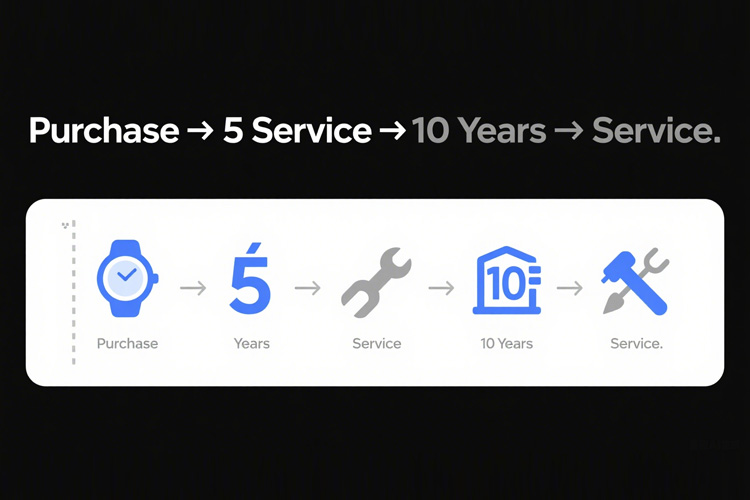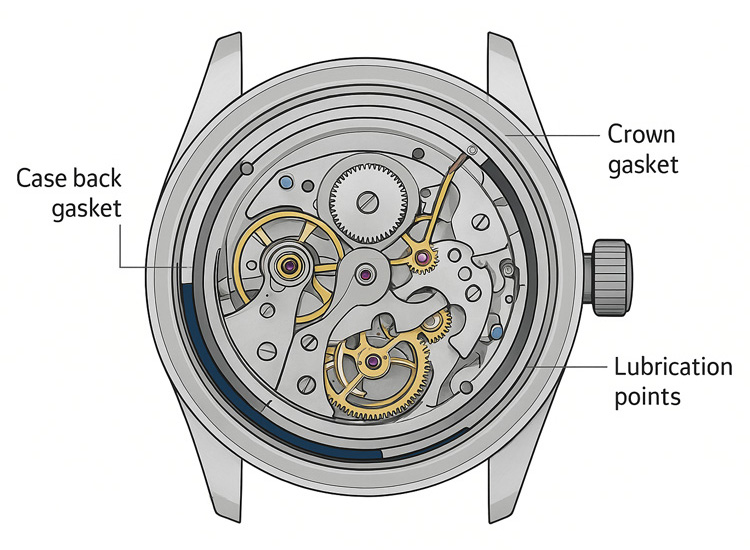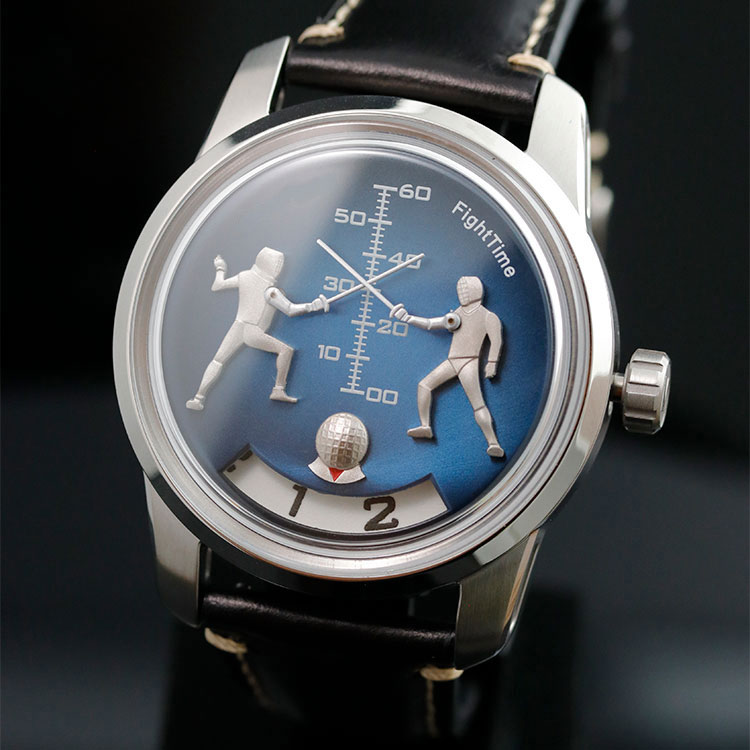Owning a mechanical watch means owning a piece of craftsmanship that can last decades—or even a lifetime—if properly maintained. But many watch owners ask the same two questions: “How often should I service my mechanical watch?” and “How much will it cost?” This guide breaks it down in plain language.
1. Recommended Service Intervals (How Often Service a Mechanical Watch)
Standard: Every 4–5 Years
Most brands and watchmakers recommend a full service every 4–5 years. This schedule aligns with the consensus in the industry, as lubrication inside the movement begins to degrade after this period. According to The Watch Pages, a 5-year cycle is widely considered the sweet spot.

Range for Longer Use (7–10 Years)
Some collectors on forums like argue that watches stored in rotation or used lightly may last 7–10 years before needing service. However, stretching intervals increases the risk of internal wear, so it’s a tradeoff between cost savings and safety.
Immediate Service Triggers
Regardless of years passed, certain symptoms mean you should book a service immediately:
-
Noticeable accuracy drift (e.g., gaining/losing more than 30 seconds/day).
-
Moisture under the crystal, even slight fogging.
-
A stiff crown when winding or setting time.
-
Unusually loud ticking or grinding during winding.

2. Understanding Service Costs (How Much to Service a Mechanical Watch)
Basic Full Service (Simple 3-hand Watches)
For entry-level or simple mechanical watches, a basic overhaul costs around $100–300. This covers disassembly, cleaning, re-oiling, and reassembly.
Mid-Range Luxury / Complicated Service
Complicated movements (chronographs, dual time zones, moonphases) usually cost $400–1,000+ to service. Luxury brands often have higher service fees due to stricter QC and brand-authorized parts.
High-End or Multi-Complication Service
For watches with tourbillons, perpetual calendars, or double complications, service costs can reach $1,500–2,500+. Jewelers such as Shreve & Co. confirm that servicing haute horlogerie requires highly specialized skills.
Regional and Brand Variability
Service costs also depend on where and who you go to:
-
Swiss luxury brands may charge $400–700 even for standard models.
-
Boutique repair centers sometimes take 2–3 months to return a watch.
As TEKNON notes, regional labor costs also play a big role.

3. Why Service Your Mechanical Watch
Lubrication Degradation & Wear
Over time, oils evaporate and thicken, creating extra friction. If ignored, gears and pivots can grind down. The Watch Pages and WIRED both highlight lubrication as the #1 reason for servicing.
Maintaining Accuracy & Water Resistance
Even if your watch keeps time, the gaskets that protect against water deteriorate. According to No BS Watchmaker, a worn gasket can ruin a watch if water seeps in.

Preserving Value & Longevity
Preventative maintenance is almost always cheaper than repairing after damage. For collectors, keeping a watch serviced also helps preserve its resale value.
4. DIY vs. Professional Servicing
Risks of DIY
Servicing a mechanical watch at home is risky. Dust contamination or misalignment can ruin the movement. GQ warns that even small mistakes can cost hundreds to fix.
Benefits of Professional Service
Certified watchmakers use clean environments, specialized tools, and timing machines. They also provide a warranty on their work—something DIY cannot guarantee.
Exceptions (Safe DIY Upkeep)
You can safely do small things yourself:
-
Clean the case with a microfiber cloth.
-
Brush between lugs with a soft brush.
-
Store in a dry place away from strong magnets.

5. Extending Maintenance Intervals
Smart Usage Habits
Wear your watch regularly or wind it once a month to keep oils distributed evenly.
Environmental Avoidance
Keep watches away from magnetic fields, shocks, and extreme humidity. Even speakers or phone cases with magnets can disrupt accuracy.
Authorized Maintenance
Stick with brand-authorized service centers. They have access to official parts and follow factory QC standards.
Conclusion & Buyer Advice
Most mechanical watches need a service every 4–5 years, with costs ranging from $100 for basics to $2,500+ for haute complications. Paying attention to accuracy, lubrication, and gaskets will save you thousands in the long run.
Key takeaways:
-
Don’t skip service intervals (prevention > repair).
-
Factor service costs into your budget when buying a watch.
-
Choose professional, authorized servicing for peace of mind.






